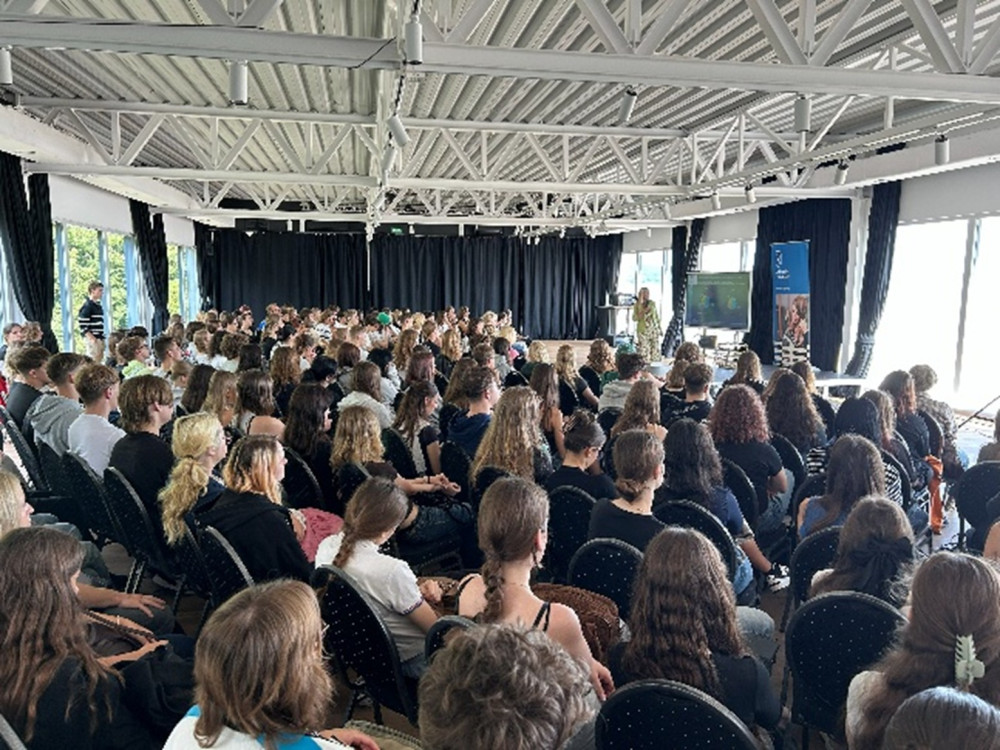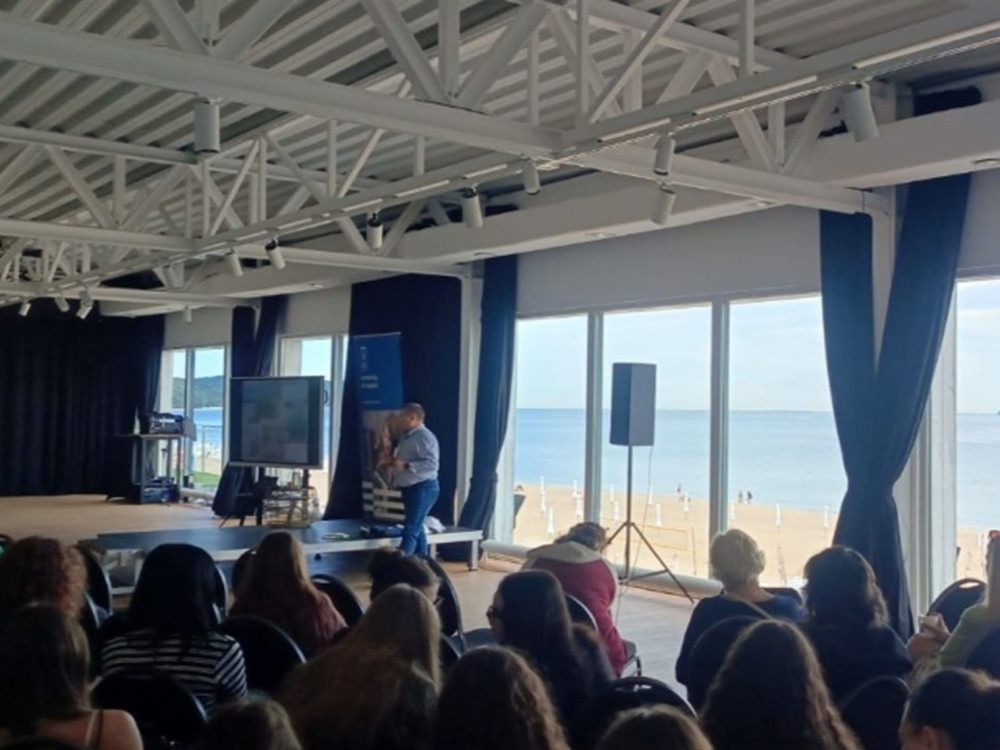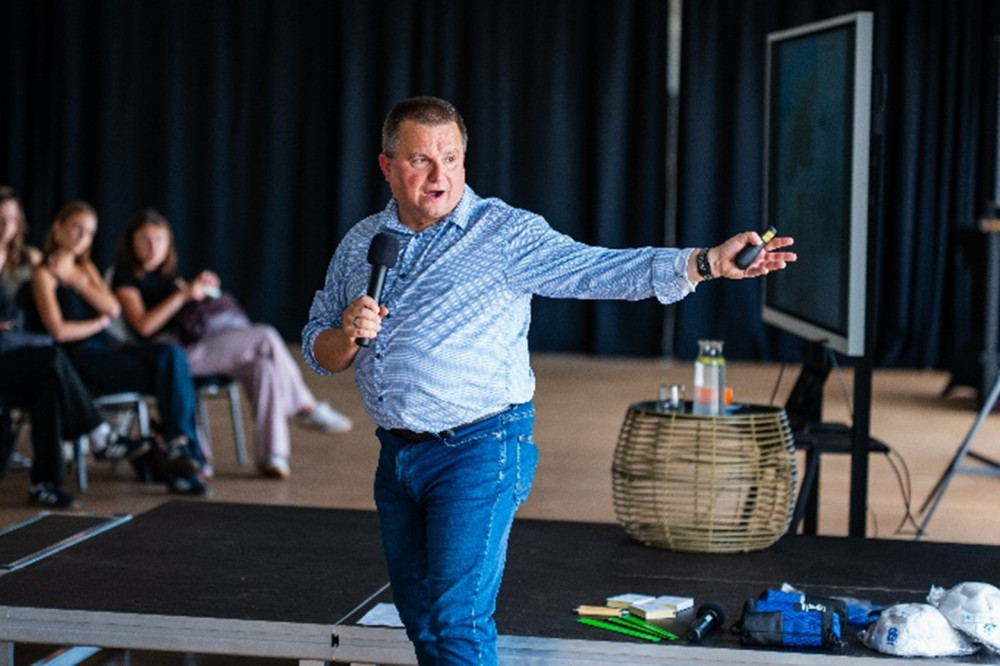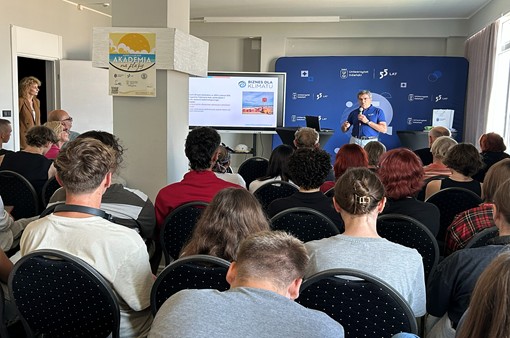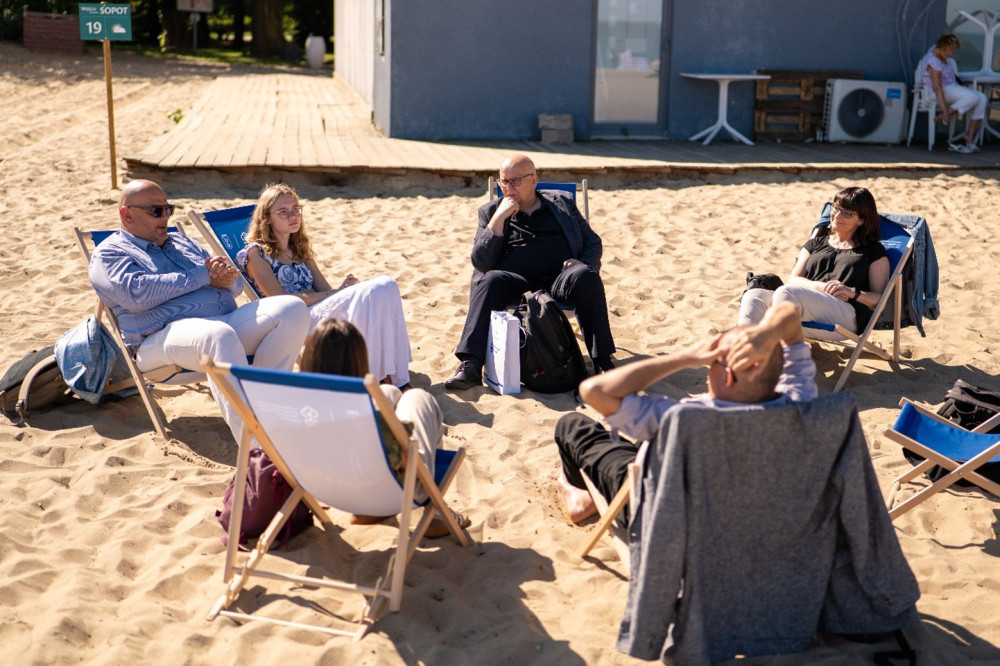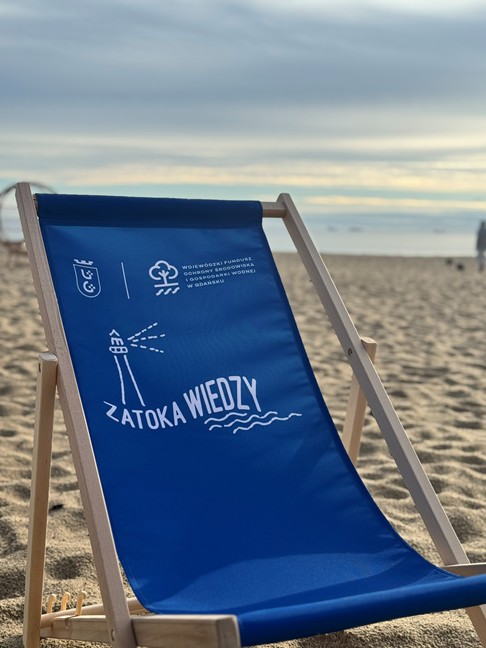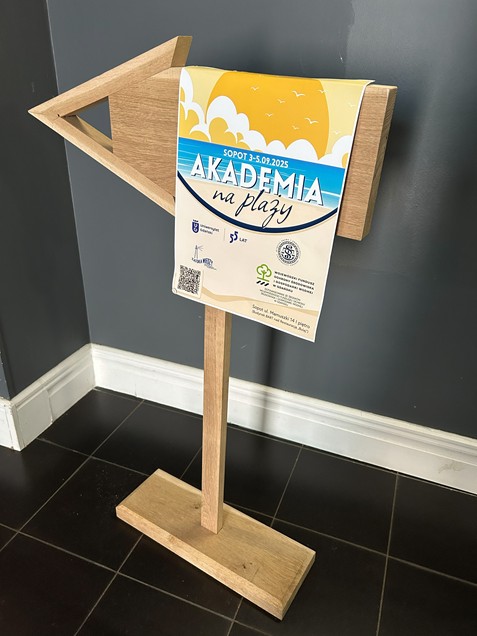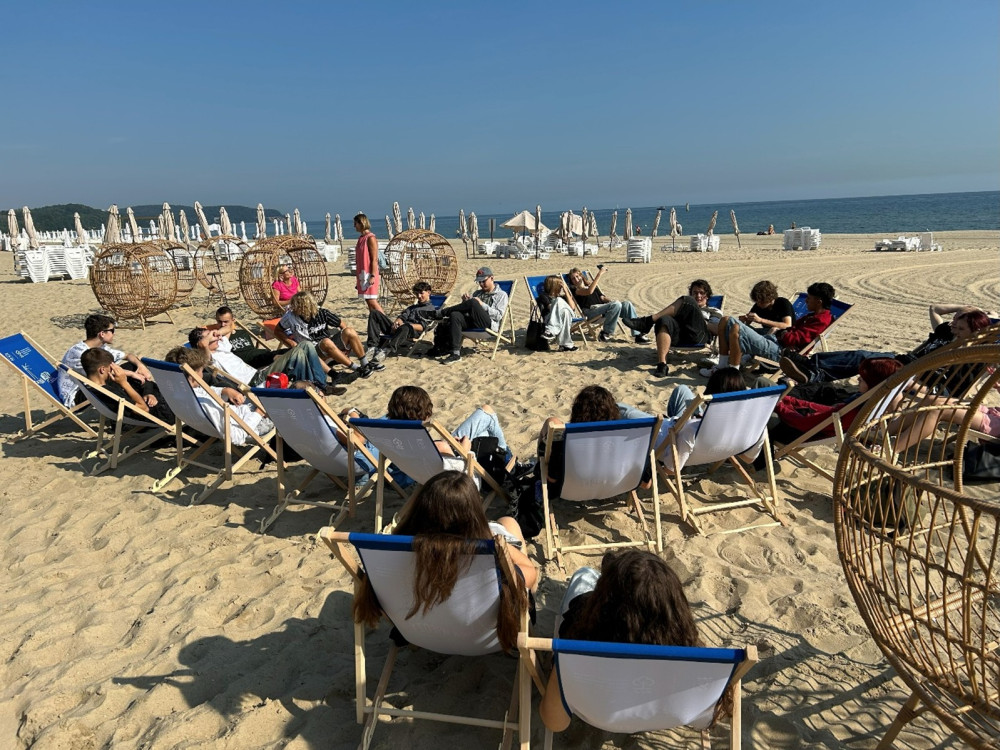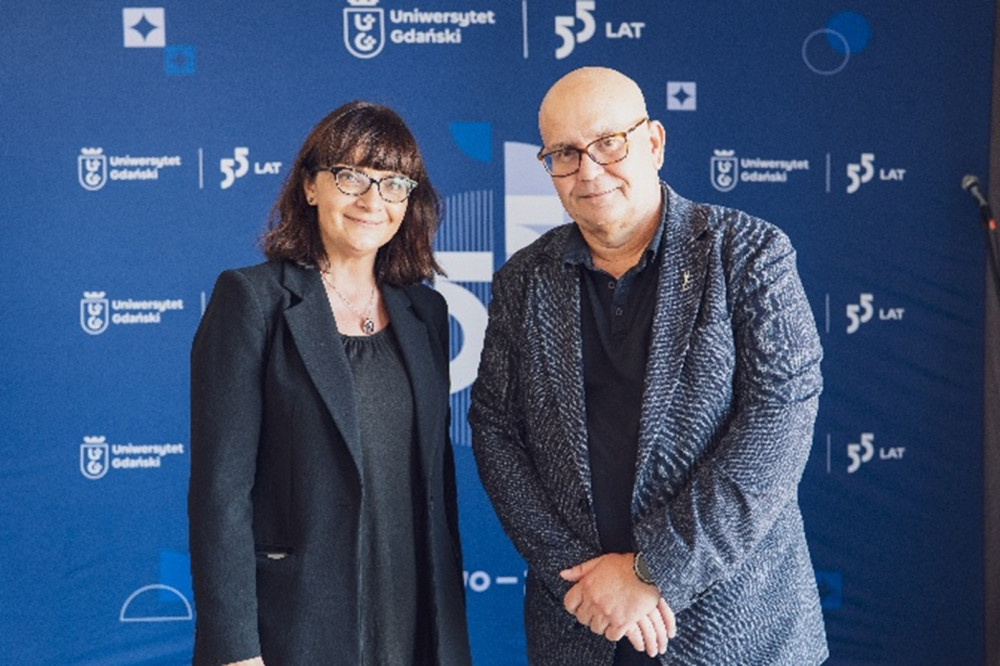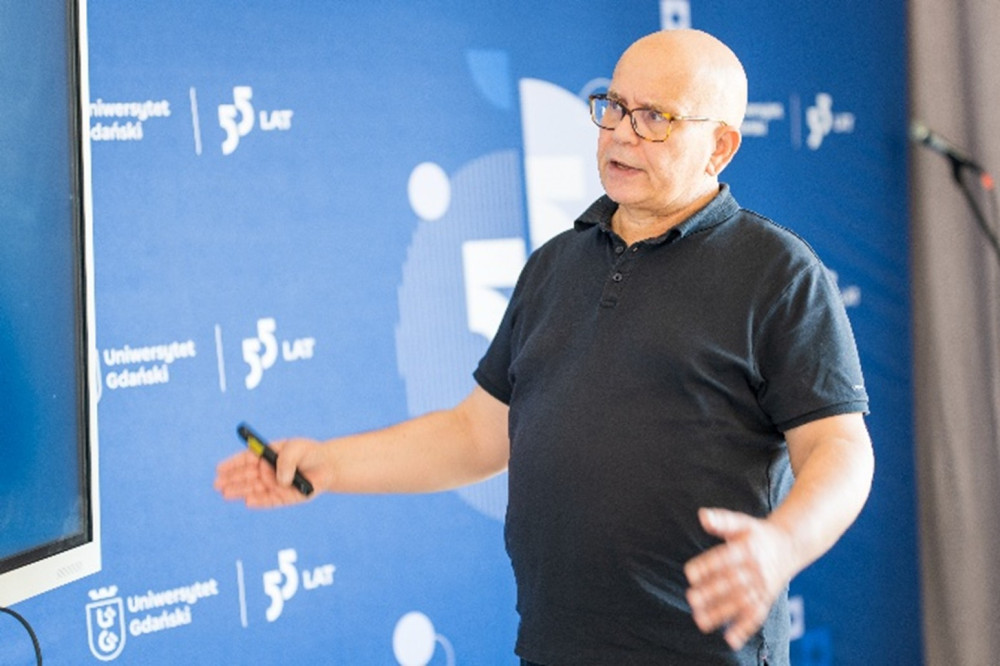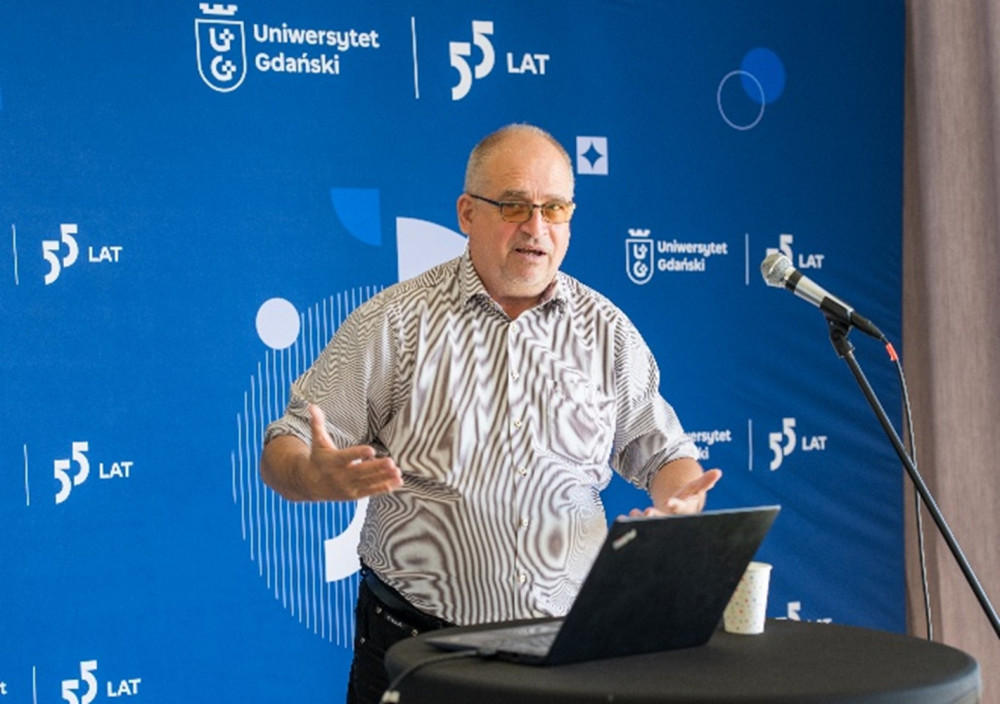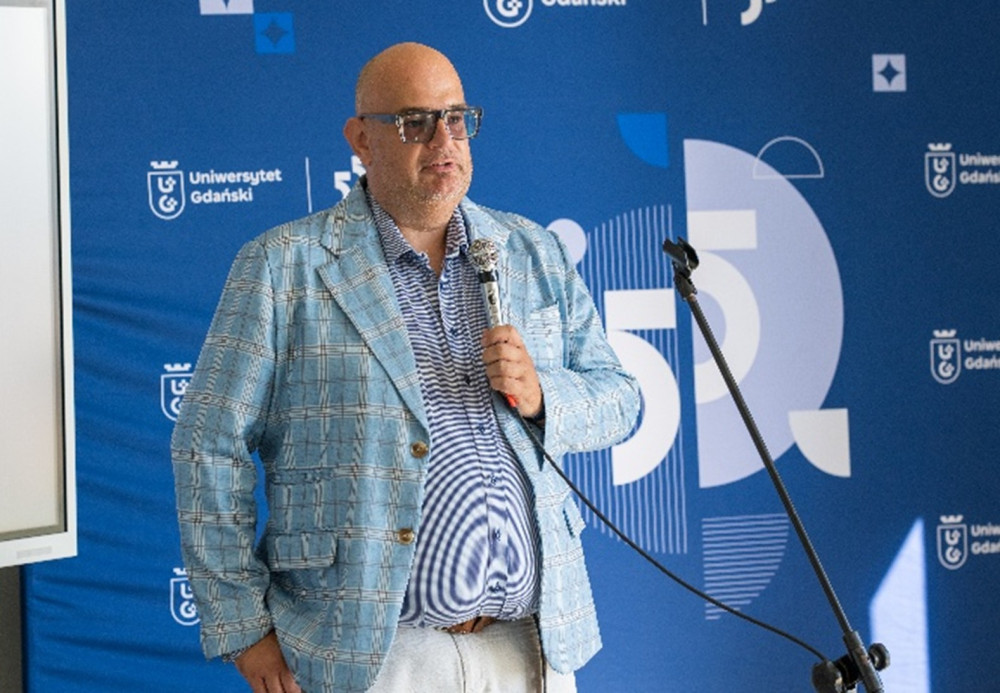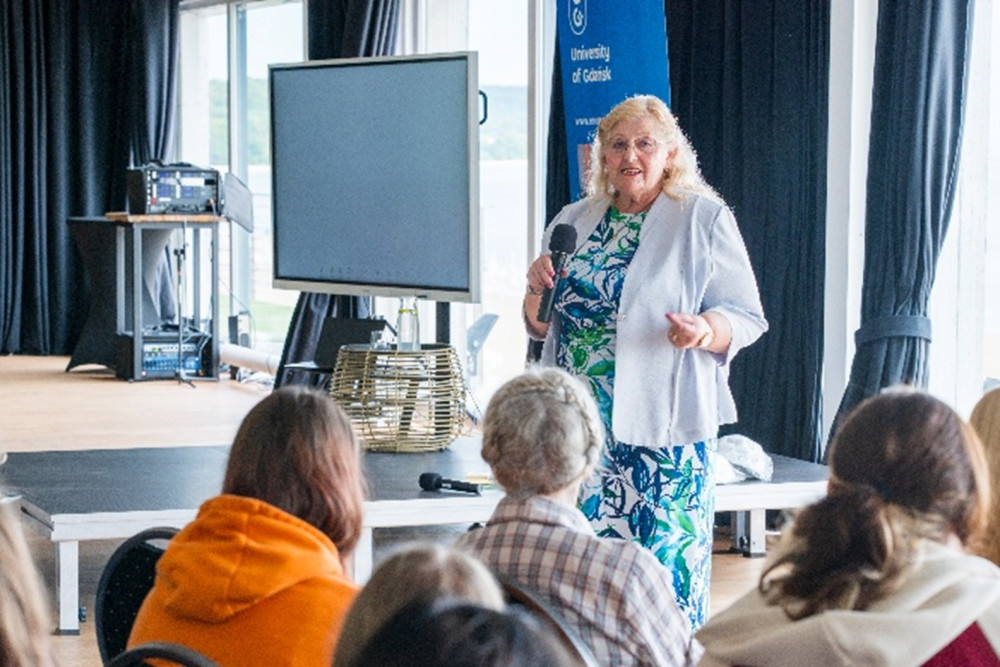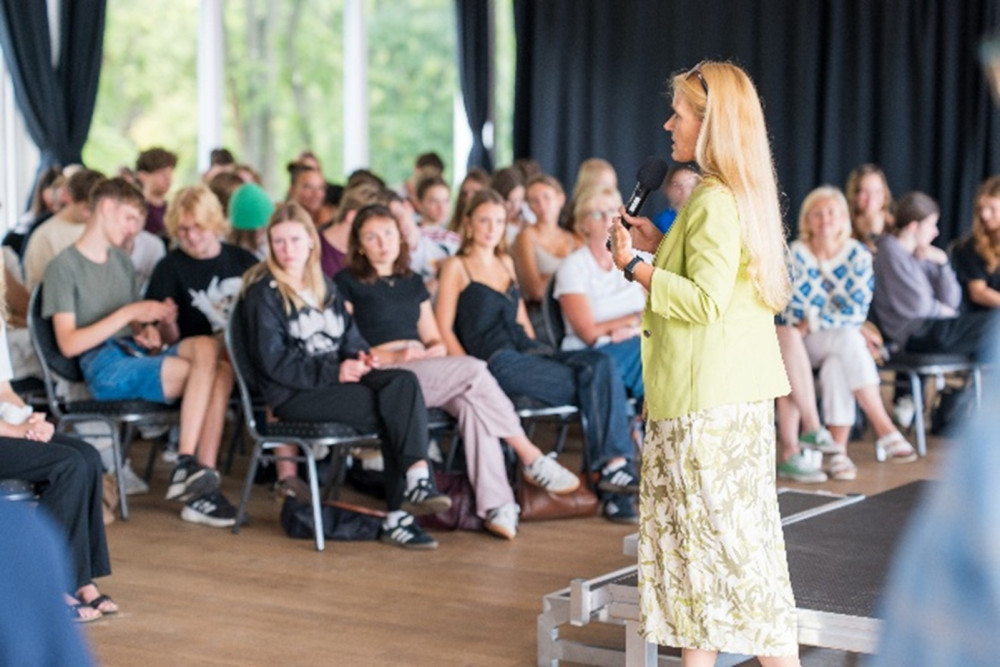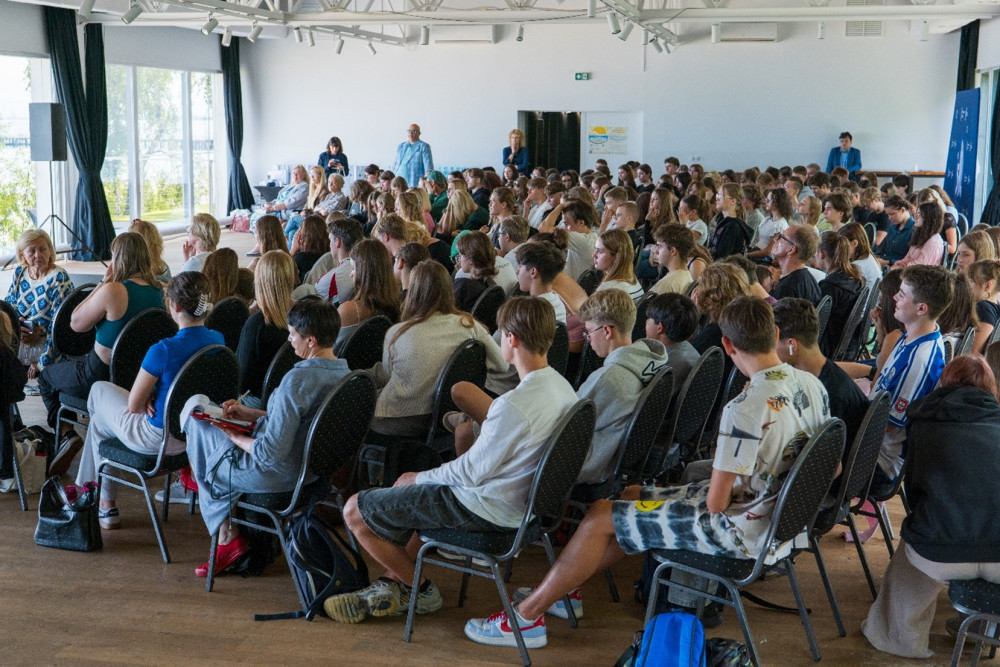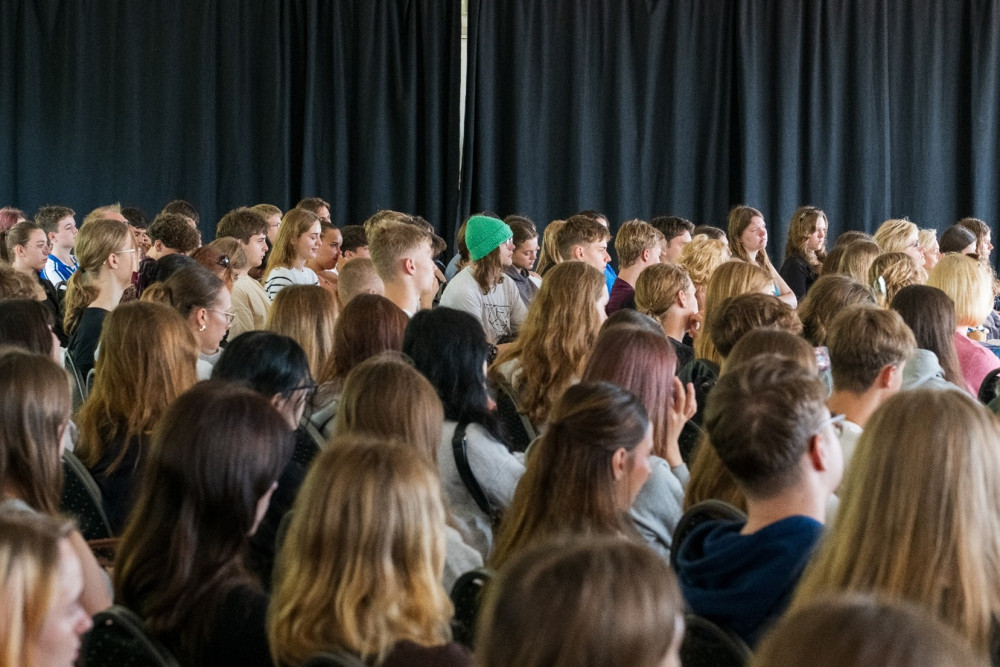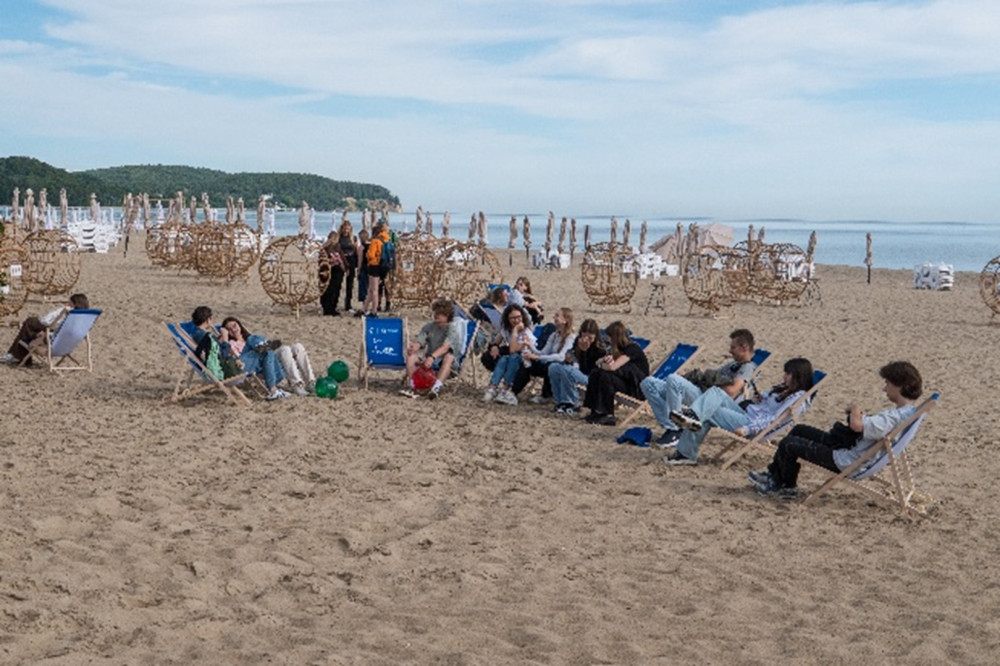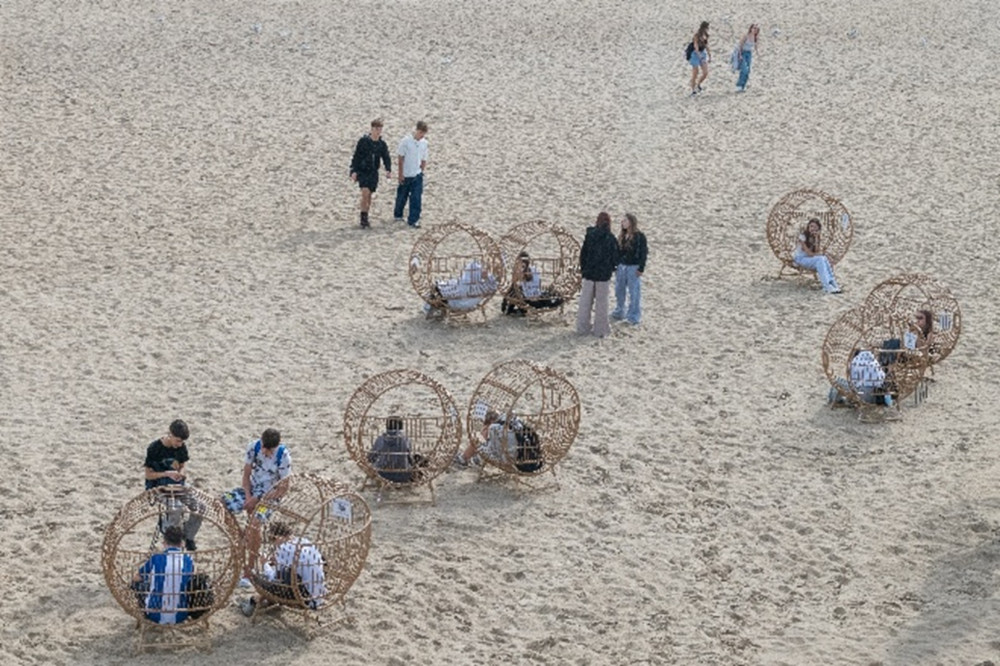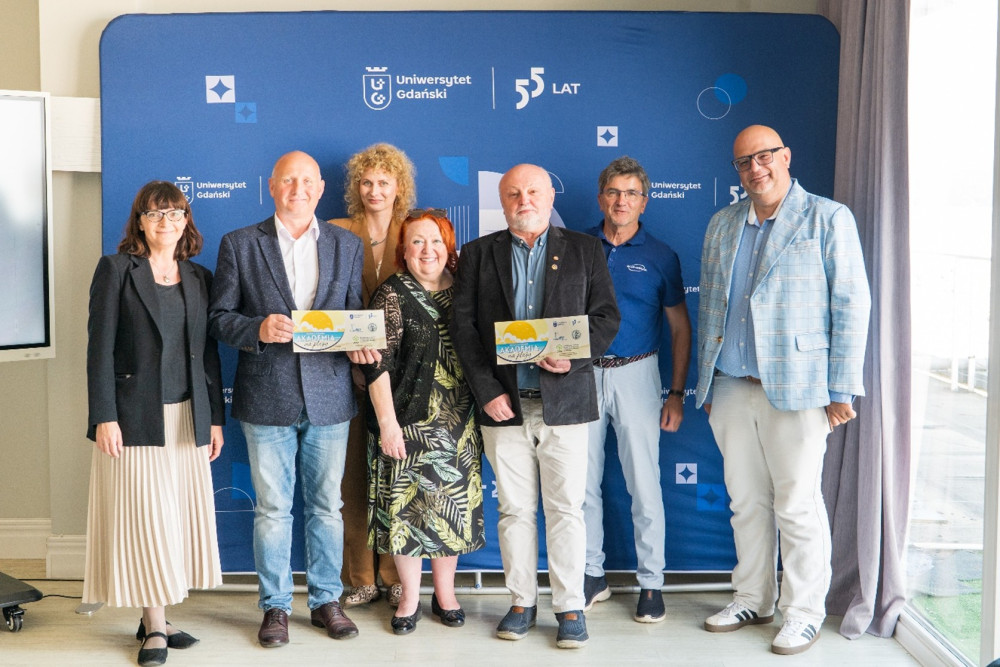Report from the Academy on the Beach
Report from the Academy on the Beach

From 3 to 5 September 2025, the beach in Sopot became an exceptional space for encounters with science during the “Academia on the Beach” event, organised by the University of Gdańsk in cooperation with, and with financial support from, the Provincial Fund for Environmental Protection and Water Management.
The beach and the nearby Culture Centre at Mamuszki 14 transformed into a place of open dialogue about the future of the Baltic Sea, combining the holiday seaside atmosphere with reliable, interdisciplinary scientific knowledge.
The aim of Academia on the Beach was to raise societal ecological awareness and introduce a broad audience to the most pressing challenges facing the Baltic Sea.
The event was addressed to residents of the Tri-City, tourists, families, pupils, students, youth groups, and all those interested in environmental issues. Science symbolically “stepped outside the walls of the university” to allow participants to engage directly with experts in the natural setting of the seashore.
During Academia on the Beach, participants had the opportunity to attend a series of specialised lectures that explored in detail the most pressing environmental problems affecting the Baltic Sea. Over the three-day event, six lectures and three debates were held.
The speakers included researchers from various faculties of the University of Gdańsk, as well as representatives of the University of Łódź, the Medical University of Gdańsk, the University of Klaipėda, and experts from non-governmental organisations specialising in climate and environmental protection.
On 3 September 2025, the event commenced with a lecture by Professor Monika Król from the University of Łódź, who presented the relationship between agriculture and water quality, explaining the practices that can help reduce eutrophication and the degradation of marine ecosystems. This was followed by a lecture by Professor Piotr Rutkowski from the Faculty of Biology at the University of Gdańsk, who introduced the audience to the fascinating world of plants adapted to sandy habitats and highlighted their crucial role in maintaining the stability and biodiversity of coastal environments. During the day, Professor Janina Ciechanowicz McLean also took part in the discussions, sharing her expertise on the legal aspects of marine environmental degradation and the Green Deal. The day concluded with a debate on the protection of marine coastlines, during which speakers considered how to safeguard shoreline areas while simultaneously supporting the health of the entire Baltic ecosystem.
On the second day, 4 September, the programme opened with a lecture by Professor Ramunas Pavilanskas from the University of Klaipėda, who convincingly argued that the protection of harbour porpoises, one of the rarest marine mammals in the Baltic Sea, requires the establishment of transboundary marine protected areas jointly created by Poland, Sweden, Lithuania, and Latvia. Later, Professor Leszek Łęczyński from the Faculty of Oceanography and Geography at the University of Gdańsk discussed the dynamic transformations of the southern Baltic coastline under changing climate conditions, drawing attention to accelerating erosion processes and the need for their continuous monitoring. These lectures were followed by a debate on the protection of both living and non-living natural resources of the Baltic Sea, during which experts emphasised the importance of integrating scientific and policy measures to ensure long-term ecological protection.
On the third day, September 5, participants listened to a lecture on the risks posed by shipwrecks containing fuel that still lie in Polish marine waters, representing a significant ecological threat. The presentation, delivered by Dr. Eng. Benedykt Hac and Professor Lidia Wolska from the Medical University of Gdańsk, focused on chemical and conventional munitions dumped in the Baltic Sea; the speakers outlined both the scale of the problem and the potential consequences for humans and the environment. Subsequently, Wojciech Falkowski discussed the impact of stormwater management in coastal areas on beach cleanliness, highlighting the need for solutions that minimise pollutant runoff into the sea. The final programme item was a debate featuring Professor Lidia Wolska, Dr. Eng. Benedykt Hac, Wojciech Falkowski, and Professor Ryszard Rolbiecki from the Faculty of Economics at the University of Gdańsk, devoted to the concept of granting legal personality to rivers and water bodies. During this discussion, experts examined the potential benefits and challenges associated with this approach to environmental protection.
The three-day event attracted considerable interest from individual participants, families, youth groups, and schools. In total, more than 350 people participated, with many more expressing a willingness to join.
Participants were able not only to gain knowledge but also to engage in direct conversations with experts. The lectures took place in the natural surroundings of the seashore, which added a unique dimension and highlighted the fact that the issues under discussion relate to the environment that is closest to us.
Academia on the Beach was much more than a series of lectures. It became a space for open dialogue on climate change, nature conservation, and shared environmental responsibility. Discussions conducted right next to the Baltic Sea served as a reminder that the effects of our actions, or inactions, are visible just metres away, inspiring attendees to engage in everyday environmental stewardship.
The event was carried out as part of the project “Bay of Knowledge – Developing the Ecological Competences of Society through Education” led by Dr. Magdalena Markiewicz from the Faculty of Economics at the University of Gdańsk.
The coordinator of the Academia on the Beach initiative was Professor Maciej Nyka from the Faculty of Law and Administration at the University of Gdańsk.
The event was made possible through the cooperation of the University of Gdańsk with institutions supporting the project, particularly the Provincial Fund for Environmental Protection and Water Management, whose financial contribution enabled the implementation of the “Bay of Knowledge” initiative.
The organisational facilities and the seaside space for lectures and discussions were provided through collaboration with the Mamuszki 14 Culture Centre. Additional organisational and media support was offered by the University of Gdańsk’s Centre for Student and Doctoral Activity.
We extend our sincere thanks to all partners, speakers, and participants!
